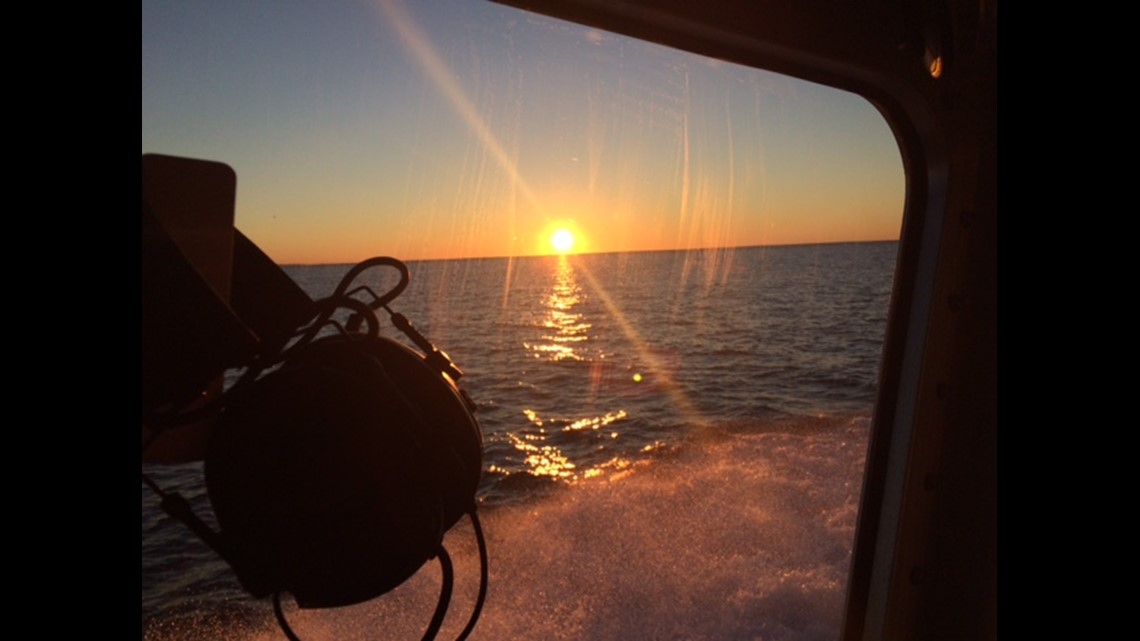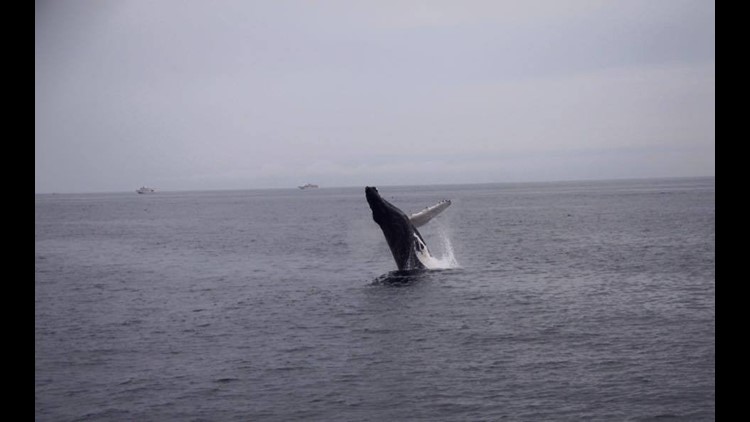NEW LONDON — Even though the summer is soon nearing an end, the boaters are still out in force. Now, NOAA, the National Oceanic and Atmospheric Administration is reminding boaters to keep a watchful eye out for humpback whales in the Long Island Sound.
NOAA is reporting an increase in the number of humpback whale sightings in the Long Island Sound this summer, with many of the sightings in the far western stretch of Long Island Sound. NOAA says there were believed to be multiple humpbacks close to shore feeding on small fish.
FOX 61's Kaitlin Goslee is out on the Long Island Sound Tuesday morning to talk to experts from NOAA who will explain how to keep both people and whales safe.
They also warn that a collision with a boat and a whale can be deadly to the whale and can be dangerous to boaters. A concern is the increase in the number of people trying to get close to the whales to take pictures.
NOAA reminds the public there are rules and regulations around how close you can be to the whales to be able to view them safely. Under the Marine Mammal Protection Act, the safe viewing distance is 100 feet away from the humpback whales.
Humpback whales can grow as long as 60 feet and can weigh upwards of 40 tons.
According to NOAA, during migration, humpbacks stay near the surface of the ocean. While feeding and calving, humpbacks prefer shallow waters. During calving, humpbacks are usually found in the warmest waters available at that latitude. Calving grounds are commonly near offshore reef systems, islands, or continental shores.


The humpback whale lives in all the major oceans around the world from north of the equator to just below the polar latitudes. They tend to feed in the spring, summer, and fall all along the eastern coast of the United States, and are often spotted in the Gulf of Maine, according to NOAA.
They have been put in dangerous situations and become entangled in fishing lines or netting. If you spot a whale or see one entangled you are asked to report it to NOAA, by calling (866)-755-6622. You can also call the local rescue hotline at Mystic Aquarium at (860)-572-5955, ext. 107.



